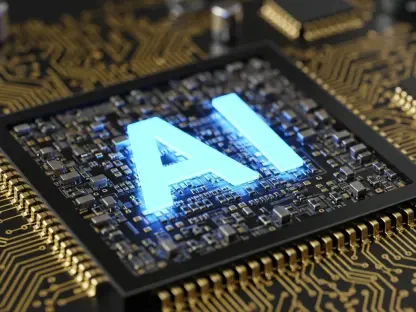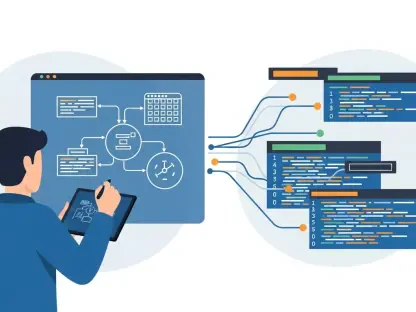Introducing Anand Naidu, a seasoned expert in both frontend and backend development, renowned for his profound understanding of coding languages. Today, we delve into the transformative impact of AI on database management. Naidu offers a wealth of insight into how AI continues to reshape the industry landscape, pushing the boundaries of what’s achievable. Let’s explore the future of database management together.
Can you explain how generative AI has impacted database management in recent years?
Generative AI has revolutionized the way we manage databases by simplifying and accelerating numerous key processes. It enables us to cleanse data, fill in missing details, and standardize formats effectively. Beyond these essentials, it has democratized data access. With its ability for pattern recognition, generative AI empowers teams to quickly analyze datasets, detect anomalies, and derive meaningful insights. This technological advancement has made data management more accessible and efficient across various skill levels.
What is agentic AI, and how does it differ from generative AI in the context of database management?
Agentic AI refers to systems that are designed to operate autonomously, making decisions and taking actions based on specific goals. Unlike generative AI, which focuses on creating outputs from user prompts, agentic AI is task-oriented and proactive. It offers a new level of independence, enabling systems to perform complex decision-making and real-time analytics without human intervention. This distinction marks a significant evolution from the supportive role of generative AI to the autonomous capabilities of agentic AI in database management.
How do you see agentic AI revolutionizing database management practices?
Agentic AI is poised to revolutionize database management by handling tasks that require real-time decision-making and adaptability. With its autonomous capabilities, it can optimize performance and resolve issues on its own, reducing the need for constant human oversight. This evolution will significantly ease the pressures on data teams and allow businesses to manage increasing data volumes more effectively. As agentic AI becomes more sophisticated, the scope and complexity of tasks it can manage will continue to expand, offering unprecedented efficiency and reliability.
What are some specific capabilities that agentic AI brings to database management?
Agentic AI introduces several groundbreaking capabilities to database management. It can autonomously tune workloads, predict and prevent potential system failures, and dynamically optimize queries and indexing. By recognizing usage patterns and anomalies, agentic AI takes proactive steps to manage performance and reliability, often automatically responding to system alerts and making necessary adjustments without human intervention. These features allow for more seamless, hands-free operation of databases.
Can you elaborate on how agentic AI can autonomously tune workloads?
Agentic AI analyzes usage patterns and demand in real-time and adjusts workloads accordingly. It identifies bottlenecks and allocates resources effectively to optimize throughput and performance. This ability to dynamically shift and balance systems’ load ensures maximum operational efficiency and minimizes downtime, making the management of databases more resilient and adaptive.
How does agentic AI predict and prevent system failures?
Agentic AI uses complex algorithms to monitor databases continuously, spotting anomalies and irregularities that may lead to system failures. By predicting potential issues before they escalate, agentic AI can execute preventive measures, such as rerouting traffic or adjusting configurations, to avoid disruptions. This predictive maintenance approach mitigates risks and enhances the reliability of database operations.
In what ways can agentic AI optimize queries and indexing?
Agentic AI optimizes queries and indexing by analyzing patterns and understanding the specific needs of the database environment. It automatically adjusts indexes and refines queries to enhance speed and efficiency. By doing so, it ensures that data retrieval processes are as streamlined as possible, leading to faster response times and improved performance.
What are the potential challenges or risks associated with implementing agentic AI in database management?
Adopting agentic AI comes with several challenges, primarily around control and transparency. There is a risk of unexpected behavior due to the autonomous nature of these systems. Ensuring rigorous testing and validation is crucial to confirm the safety and accuracy of decision-making processes. Additionally, establishing clear governance and logging systems is vital, allowing organizations to trace and adjust actions taken by AI agents, thus maintaining accountability and control.
How can organizations balance the benefits of agentic AI with the need to ensure control and transparency?
To balance these aspects, organizations should implement comprehensive governance frameworks that define the scope of AI actions. It’s essential to have audit trails and logging procedures to track AI decisions and ensure transparency. Regular testing and validation can help maintain system integrity and ensure that any actions taken can be reversed or corrected if necessary. By incorporating robust oversight while harnessing the efficiency of agentic AI, organizations can reap its benefits without compromising control.
Why is the open-source community important in developing agentic AI for database management?
The open-source community plays a pivotal role by promoting transparency, collaboration, and innovation in agentic AI development. Through shared efforts, open-source projects help create more adaptable and ethical AI systems, ensuring that advancements benefit a wide user base rather than exclusive groups. This collaborative environment facilitates rapid development and testing, making agentic AI more robust and reliable.
How can open-source collaboration help mitigate the risks of agentic AI?
Open-source collaboration allows for greater visibility into how AI systems make decisions, which is essential for mitigating risks associated with opaque “black-box” AI models. It enables organizations to customize systems to their specific needs and contribute to an ecosystem that encourages innovation and risk mitigation. This community-driven approach not only democratizes access to AI technologies but also provides a safeguard against potential misuses and unintended consequences.
What are some key considerations companies should have when testing and validating agentic AI systems?
Companies need to prioritize comprehensive testing and validation processes to ensure AI systems function as intended. This includes stress-testing the AI under different conditions, validating the robustness of its decision-making capabilities, and ensuring thorough auditing trails exist. It’s also important to consider the human factor, preparing teams to interpret and manage AI outputs effectively. These measures ensure that agentic AI not only performs efficiently but also remains reliable and secure.
How will agentic AI change the nature of human involvement in database management?
Agentic AI will transform human involvement from hands-on management to a supervisory role, where humans oversee AI operations and intervene as necessary. This shift allows for more strategic and meaningful work, reducing the burden of routine database tasks. Humans will focus on high-level decision-making and innovation, utilizing insights provided by AI to drive business improvements.
What strategic steps should companies take to prepare employees for the integration of agentic AI in database management?
Businesses should focus on strategic change management, offering training programs for employees to understand AI tools and their implications. Emphasizing skill development and creating cross-functional teams can promote collaboration between AI systems and human workers. Companies should also foster a culture of adaptability and continuous learning to help employees transition smoothly into roles augmented by AI technologies.
Do you think agentic AI will lead to full autonomy in database management, and why or why not?
While agentic AI can handle a multitude of tasks independently, full autonomy is unlikely. The need for human oversight and intervention in complex decision-making and exceptions will always persist. The goal is to augment human capabilities, rather than replace them entirely, allowing for more efficiency while ensuring accountability and ethical considerations are maintained.
What advantages does agentic AI offer that make it appealing to organizations?
Agentic AI offers organizations enhanced efficiency, scalability, and agility in managing databases. Its ability to handle complex tasks autonomously reduces dependency on constant human intervention, saving time and resources. Additionally, agentic AI’s predictive and preventative capabilities help maintain system uptime and reliability, making it an attractive solution for businesses facing increasing data management demands.
How do you foresee the role of open-source innovation in ensuring transparent and accountable development of agentic AI?
Open-source innovation will provide a foundation for developing transparent and accountable AI systems. Through community collaboration, open-source projects encourage peer review and diversity in development, leading to more ethical and adaptable AI solutions. This transparency ensures that AI systems are trustworthy and aligned with a broad range of community and industry standards, fostering inclusive progress in technological advancements.
How do you envision the future of database management evolving with the integration of agentic AI?
The future of database management will likely be characterized by increased efficiency and reduced manual intervention, enabling businesses to handle larger and more complex datasets effortlessly. With agentic AI, databases will become self-sufficient, capable of real-time performance tuning, and proactive issue resolution. This evolution will free human resources for strategic initiatives and innovation, driving more meaningful contributions to organizational goals and growth.









